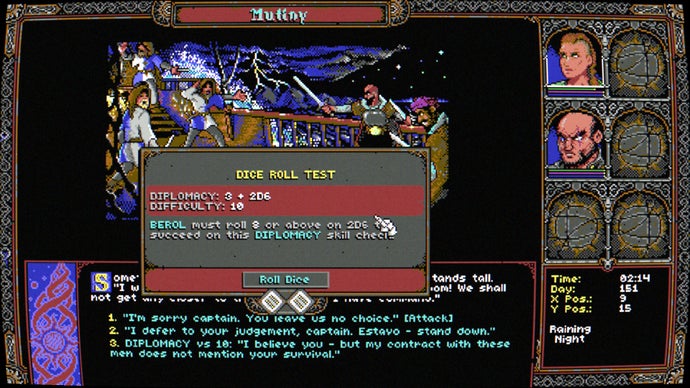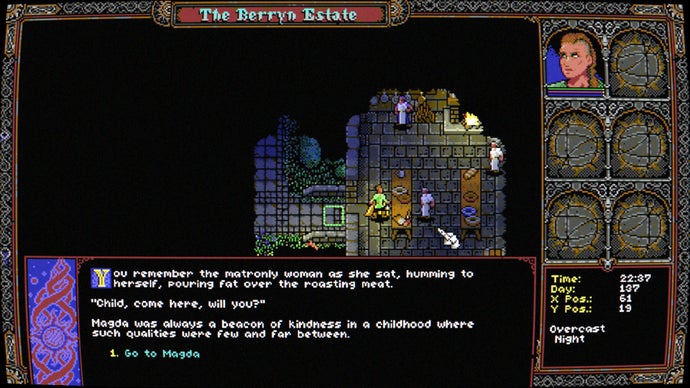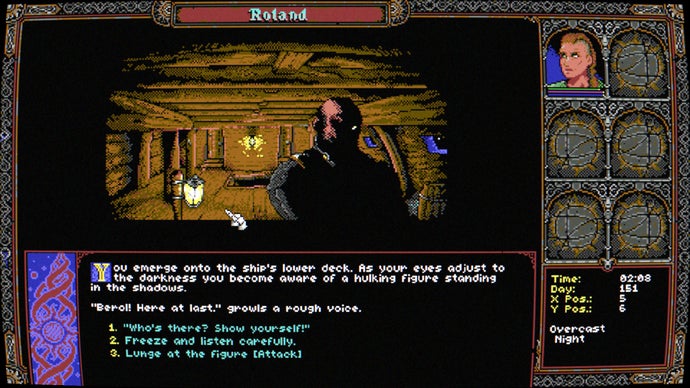When is the magical turning point in time that something considered old becomes cool again? I ask because I just enabled a CRT filter in Skald: Against the Black Priory and I squealed with joy to see it. Distortedly curved edges: phwoar – who knew? What’s strange is that I can distinctly remember when I binned CRTs off in favour of flat screens, wondering in wide-eyed awe at the visible corners of my screen. I didn’t think then that I’d ever go back. And yet now: squeal! So old it’s cool again.
It’s not the only element of old that Skald: Against the Black Priory plays on. Really, the whole thing is dressed to evoke exactly that feeling, specifically for the C64 crowd. If you played an RPG there, or thereabouts, you’ll know this. You’ll know the turn-based combat, you’ll know the text-driven adventuring, you’ll know the interface with the empty spaces, which yearn for companions to fill them. You’ll also know the look, and as with the CRT filter, the game doesn’t hold back – there’s even the option to enable a faithful C64 colour palette if you wish.
But there’s a cleverness underneath. This isn’t a one-to-one recreation because, if it were, chances are you’d find it quite annoying to play. What’s appealing is the emotional memory; your mind has worn away the aggravating edges of old experiences over time, like a stone tumbling smooth in the sea. That’s what these retro games have to be: smoothed memories.
Despite the overt stylings of it, then, Skald doesn’t actually feel old. The way you build an RPG character at the beginning feels as it does in Baldur’s Gate 3, for example, though without the myriad visual customisation options. Actually, Baldur’s Gate 3 is a good example for another reason: dice-rolls. Largely because of that game, we’ve gotten used to the idea of featured dice rolls again, and, as in BG3, here you roll to determine whether you can do something, like persuade someone in a conversation, or trick them. And it doesn’t feel old, it feels familiar.



Yet style alone wouldn’t make Skald worth writing about. After all, this is an adventure hoping to last dozens of hours or more, I expect. It’s for nothing if the guts aren’t good and if the writing is sluggish and doesn’t provide the drive the game needs. But from what I’ve seen in the short demo, it’s all there. The dialogue has punch and pace, and manages to draw vivid characters and scenes, and though graphically Skald is deliberately limited, it’s capable of striking effect.
So old it’s cool, then. But it’s the feelings that Skald: Against the Black Priory stirs that makes this RPG stand out.
This piece is part of Wishlisted, a week-long series on Eurogamer covering some of our favourite games from February 2024’s Steam Next Fest. You can read all the other pieces from the series at our Wishlisted hub.
